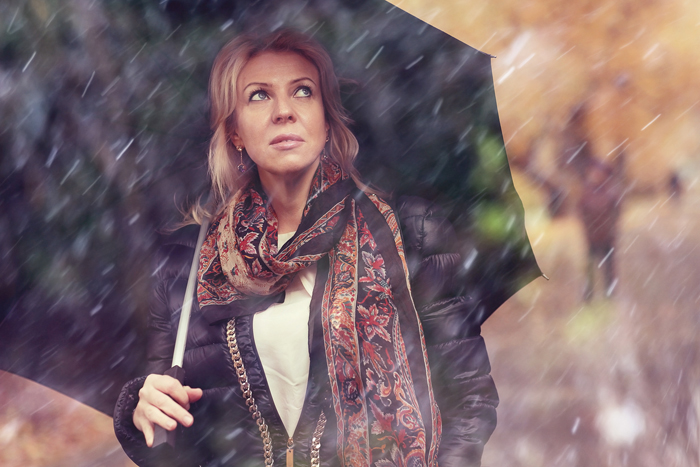Some people love walking in the rain – others despise it. Some prefer the beach, while others would rather be skiing.
People are different, and everything we experience is subjective. Even the smallest things can mean a world of difference; like an extra spoonful of sugar in a coffee.
Our reactions to the weather are no different. Small, subtle changes can affect us in ways we don’t even realise, and the change in season can bring about complete personality shifts.
Change in season – the winter blues takes its toll
Unfortunately, the old adage of a “dark, depressing winter” is actually backed up by science and many people suffer from a change in season that can develop into what is commonly referred to as “seasonal diseases”.
Seasonal Affective Disorder (or rather appropriately SAD), is a condition which affects millions of people around the world, especially in high latitude countries.
SAD is a subtype of major depression, which comes and goes based on the seasons.
In most cases, SAD symptoms appear during late autumn or early winter and dissipate with the onset of spring and summer.
The specific cause of SAD remains unconfirmed, but it’s generally acknowledged that the lack of sunlight is the main trigger.
This decrease in sunlight may disrupt your body’s circadian rhythm, disrupting the brain’s production of serotonin and melatonin. With the former affecting mood and the later affecting sleep, this can play havoc with your body, resulting in depression.

Why staying warm is important for your health
Temperature plays a huge role in how we feel and what our bodies get up to during a change in season.
When it’s cold, your body behaves in a certain way. Our heart-rate increases in order to keep our organs and limbs warm and functioning.
That extra energy means we tend to eat more in winter – but we also need to burn it off, which many of us don’t. This results in putting on weight, which leads to more health problems.
Being colder also means being more likely to become ill. Our immune systems are working overtime, and as such are less able to fight off viruses and bacteria.
Getting sick brings with it its own problems, as we all know.
Getting the kids to school on time becomes a lot harder when you’re fighting the flu, not to mention the constant feeling of exhaustion and irritability.
Cold weather is also a trigger for chronic pain.
Ask anyone with a knee or hip replacement and they’ll tell you the cold makes it worse.
Again, this affects our overall mood. We’re less social when we’re in pain, reluctant to go out or make any extra effort.
This “cabin fever” feeling during the winter months is a vicious circle.
Socializing is actually one of the most powerful anti-depressants of all, but the cold weather keeps us locked up inside, adding to the depression.
A good night’s sleep is hard to find
Perhaps the most important thing for our health is a good night’s sleep. Unfortunately, the weather can also have dire consequences on our sleep patterns.
If you’re getting up early in winter, it’s still dark. Your body is telling you to get back to bed, and doesn’t kick-start itself as it should. This can leave you unprepared for the day, making you irritable, drowsy and constantly tired.
If you work in an office or building and don’t get home until dark, then you might not see the sun for days!
This not only cuts off any Vitamin D you should be getting from sunlight, but plays havoc with your circadian rhythm.

When you sleep, your brain is processing the day’s events, creating new neural pathways and getting ready for tomorrow. A good night’s sleep improves learning, helps you pay attention, and boosts creativity.
If your brain doesn’t get the chance to do this, the results can be disastrous.
Waking up grumpy can ruin the rest of your day, but a lack of REM sleep can lead to mood swings, depression and even increases the risk of suicide.
Failure to get a good night’s sleep can also lead to physical medical problems.
Sleep is directly involved in healing and repair of tissue, including blood vessels. Increased risk of heart disease, high blood pressure, obesity, and stroke are all results of a consistent lack of sleep.
Stay comfortable no matter what the weather’s like outside
The beauty of a heat pump is you are in total control of your environment and less likely to be affected by a change in season.
A heat pump allows you to keep cool in summer and warm in winter. Those sticky, hot summer nights and those freezing winter mornings cease to be a problem.
Having a nice, temperate home allows you and your family to get a good night’s sleep, fight off viruses and stay healthy through those long dark, winter months.
Call Heat and Cool today if you have any questions about how heat pumps work, or which is the best for you and your home.
Check out our Specials Page for a good deal!
Our friendly and experienced staff will be happy to help in any way they can.


